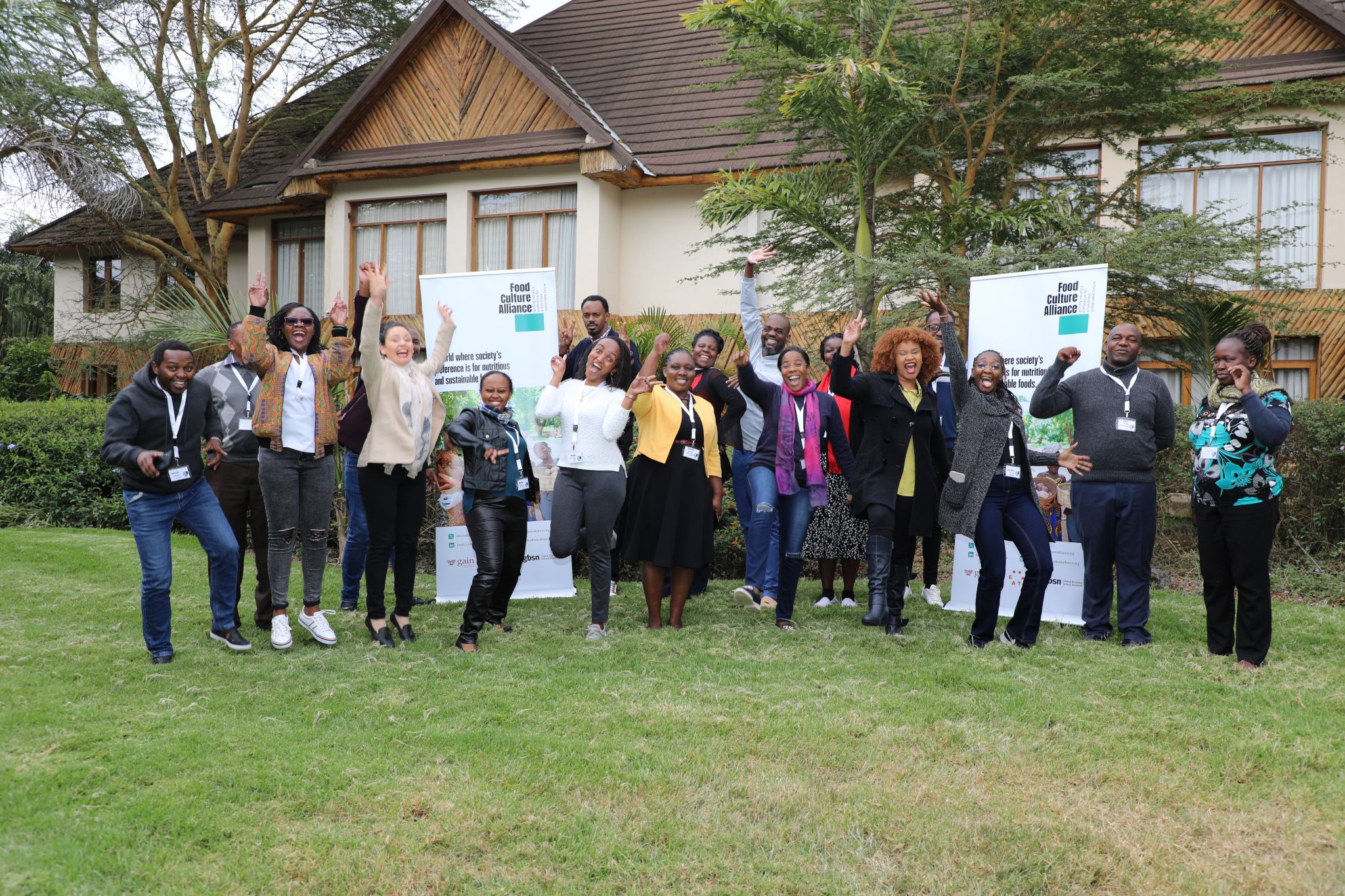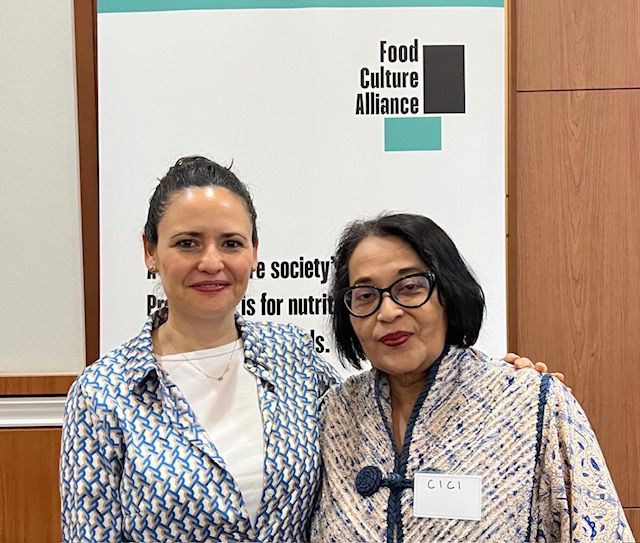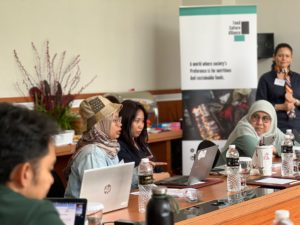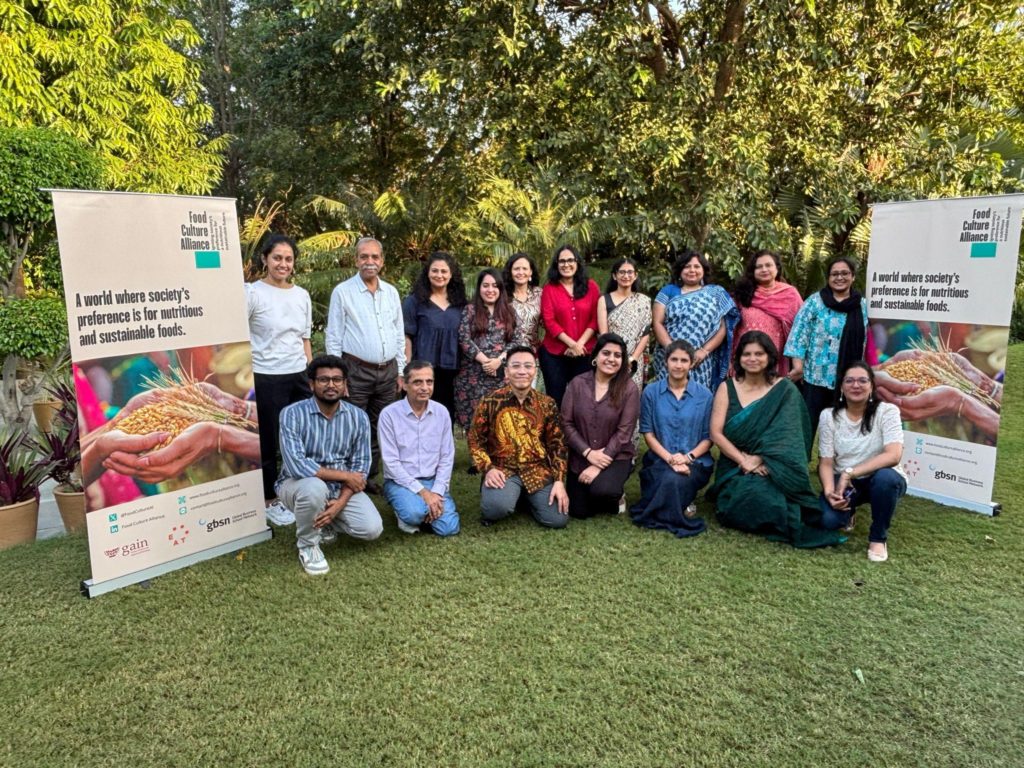Beyond Traditional Dishes: What I Learned About The Food Culture Trailblazer Programme Across Four Countries


By Eva Monterrosa, Co-Founder, Food Culture Alliance
Co-facilitating The Food Culture Trailblazer Programme across Kenya, India, Indonesia, and online platforms has been a revelation. Whether it was the 3-day in-person course in countries or the 5-week online version, each course offered a journey into understanding food culture and our power to shape it. A special thank you to my co-facilitators Prof. Dra. Ani Margawati, Priyanka Matanhelia, and Prof. Salome Bukachi.
The Starting Point
When participants first start our programme, they consistently arrive with one of three perspectives about food culture:
This view was most common among learners from communities with strong ethnic or tribal identities—places where culinary traditions feel deeply rooted and clearly defined. These participants often focused on inherited recipes, ancestral cooking methods, and food-related beliefs passed down through generations.
Participants from regions known for distinctive cuisines—think French culinary techniques or Mexican cuisine—often began here, focusing on cooking methods, ingredients, and signature dishes. They saw food culture as synonymous with culinary expertise and regional specialties.
Surprisingly, this perspective emerged most frequently from participants in the Global North, where cosmopolitan food landscapes made their own cultural patterns feel invisible or non-existent. These participants couldn’t see culture operating in their daily food choices.
This last group particularly intrigued me. In societies where food choices seem globalized, participants often couldn’t recognize their own deeply embedded cultural patterns—the values, beliefs, norms, and symbols that shape every aspect of how they relate to food.

The Deeper Discovery: Food Culture as a Cultural Framework
What every participant discovered through this Programme, regardless of their starting point, was that traditional dishes and cuisine represent only the tip of the iceberg. Our learning journey went from understanding food culture building blocks to designing food culture interventions. Through the five modules, we explored that food culture is actually “the way we think about, feel about and value foods”—far more complex than mere cuisine or traditional dishes.
What are the foundational building blocks of food culture?
Values are enduring preferences that influence food choices. Across countries, we explored how different value orientations—like universalism versus power—shaped food decisions and consumption practices.
Beliefs revealed the mental frameworks shaping food perceptions. Notable beliefs included hospitality traditions, status hierarchies, seasonality principles, and food as celebration for festivals and special life events.
Norms governed social expectations around food behaviour. Though arbitrary, these rules proved powerful—like how Dalit cuisine in India was shaped by caste system food restrictions.
Identity manifested in how food choices defined individuals and group membership. Examples ranged from national dishes (Mansaf in Jordan or Rendang in West Sumatra) to staple grains (rice, ugali) to dishes evoking memories of loved ones or special moments.
Labels & symbols connected foods to deeper meanings through terms like “junk food,” “authentic cuisine,” or “superfood.” The authority to name foods represents cultural power.
Rituals created meaningful acts connecting us to social groups—from communal eating practices to candy traditions that strengthen bonds.
Looking Forward: Designing Food Culture Interventions
This understanding opens up exciting possibilities for interventions that operates through values, beliefs, norms, identity, labels, symbols, and rituals. We introduced the ‘NIBS’ Framework (Narratives, Identity, Beliefs, Culinary Systems) to understand how to design food culture interventions.
Food culture interventions require weaving together new narratives that speak to values, creating social identities that people want to adopt, shifting beliefs about what constitutes good food, and establishing norms and rituals that imbue new meaning to nutrition and sustainability.


Strategic intervention points might include:
The insights at the finish line
What fascinated me most was watching participants discover the invisible cultural patterns operating in their own food practices. Whether from Kenya, India, Indonesia, or joining us online, everyone began to recognize how these cultural building blocks shaped their daily food experiences in ways they’d never noticed. Patterns for ‘hospitality’, ‘status’, ‘conviviality’, ‘seasonality’, ‘local’, ‘abundant choice’, etc. The patterns were everywhere, once you knew how to look for them. We managed to move forward from the belief that food culture is tradition.
Perhaps the most transformative insight participants gained was recognizing that culture is of the people, by the people. We have the power to use culture because it lives within us, not in some external, immutable structure.
Participants began to understand themselves as active culture shapers, contributing to the ongoing creation and evolution of food culture.
The Universal and the Particular
Running this course across such diverse contexts revealed both the universality of these building blocks and the beautiful particularity of how they manifest in different places. Most importantly, food culture isn’t a museum piece to be preserved unchanged—it’s a living, breathing system that we collectively create and recreate. The questions before the Trailblazer Programme graduates now are: Can we be intentional about food culture interventions? And how to use cultural frameworks to create food systems that better serve human flourishing and cultural vitality? We will continue these conversations in our Community of Practice.
At the Food Culture Alliance, we’re actively exploring what influences food culture and how we can leverage it, with initiatives underway in Kenya, India, and Indonesia.
If you’d like to learn more or join us on this journey, email us at contact@foodculturealliance.org or sign up for our newsletter.
If you want to hear more from the Food Culture Alliance, including our latest news, tools, and resources, enter your email address below.